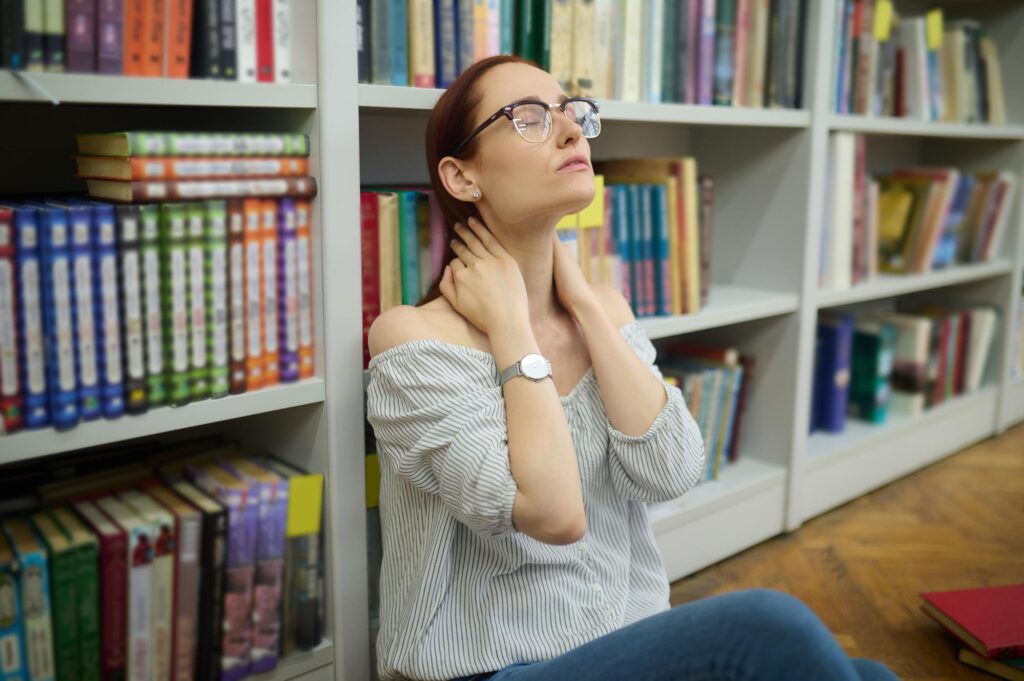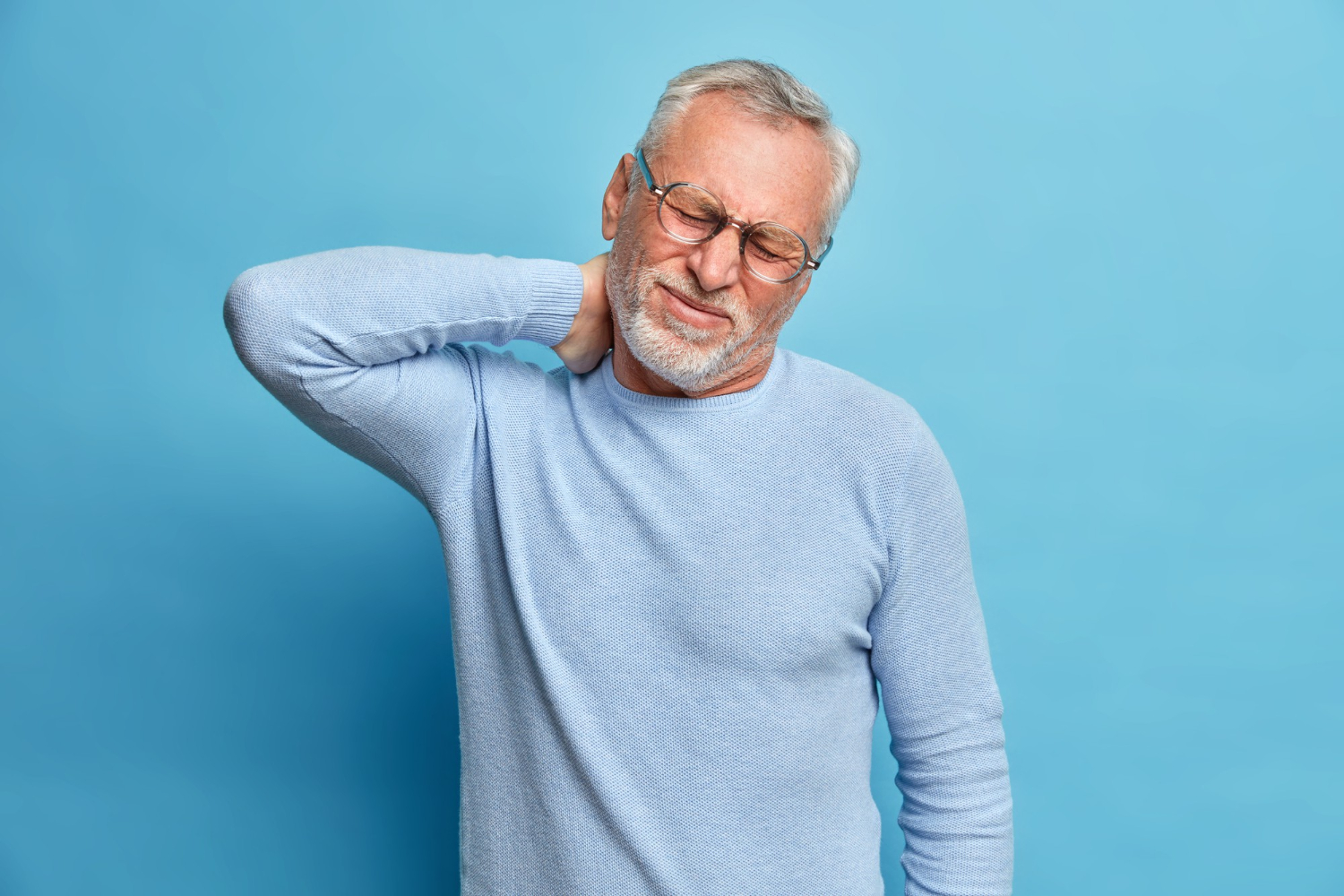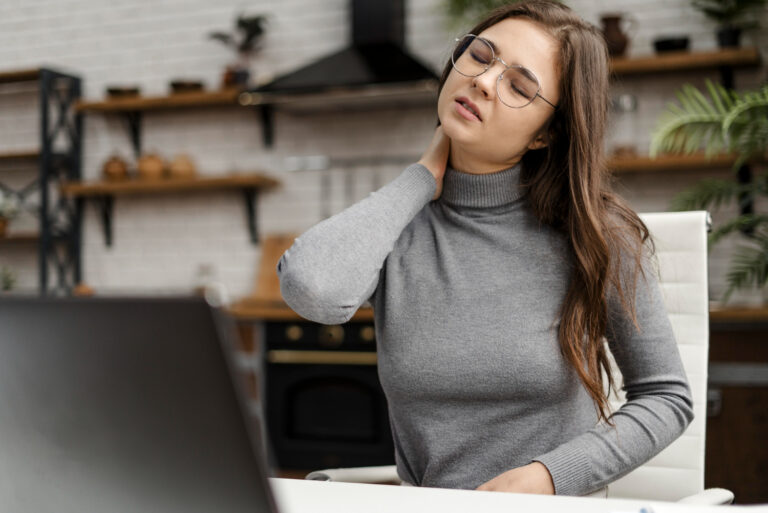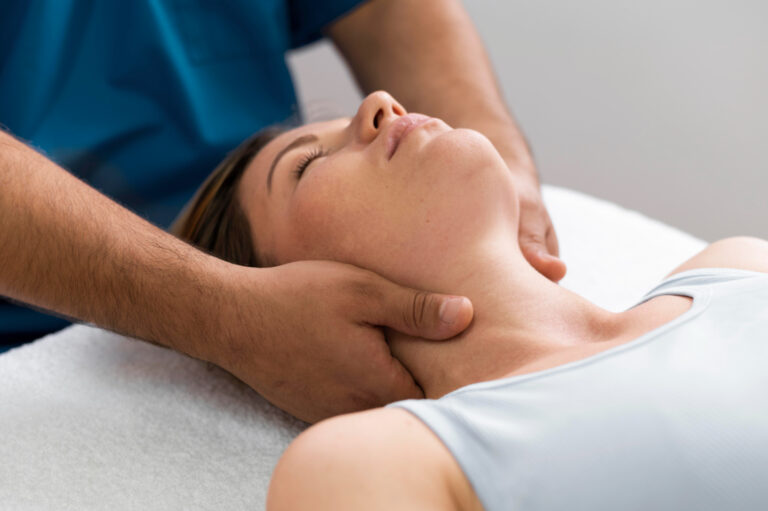Neck Pain? Don’t Stress, Let’s Discuss!
Feeling achy in your neck? You’re not the only one. many people experience neck pain, whether it’s sudden sharp pain or a dull, persistent pain. Don’t worry, it’s a common condition that happens as we age. In this blog post about cervical spondylosis, we’ll delve into the causes, symptoms, and effective remedies for neck pain.
What’s the Deal with Cervical Spondylosis?
Imagine your spine as a stack of building blocks. When these blocks (vertebrae) in your neck start wearing down, it can lead to neck pain and stiffness. It’s a fancy name for the common condition where the discs (cushion / padding) starts to wear down. This can lead to stiffness, pain,and sometimes even numbness in your arms and hands.
Common Symptom
- Neck Pain: This is the most common symptom and can range from mild to severe. It can be a dull ache or a sharp pain, and it may be worse when you move your neck or hold it in one position for a long time. The pain may also radiate to your shoulders or head.
- Stiff Neck: You may find it difficult to move your neck in certain directions. This stiffness can make it difficult to perform everyday activities, such as driving, reading, or working at a computer.
- Headaches: These can be dull or sharp, and may feel like a tight band around your head or a pressure at the base of your skull. The pain may be worse in the morning or after you’ve been sitting or standing for a long time
- Numbness or Tingling: Cervical spondylosis can cause the bones and joints in your neck to become inflamed and swollen, which can put pressure on the nerves that run through your neck. These nerves control the feeling and movement in your arms and hands. When they are compressed, you may experience numbness, tingling, or weakness in your arms or hands.
- Weakness: This can make it difficult to perform daily tasks, such as buttoning clothes, opening jars, carrying groceries, or using utensils. In severe cases, weakness in the arms or hands can make it difficult to work, drive, or even hold a pen or brush your teeth.
Request Callback
Why Does This Happen?
- Ageing: As we age, the discs between the vertebrae in our neck naturally lose water content and become less flexible. This can lead to disc degeneration, where the discs become thinner and less able to cushion the vertebrae. As a result, the vertebrae may rub together, causing pain and inflammation.
- Poor Posture: Poor posture can misalign the spine, causing the vertebrae to press against each other and potentially leading to disc herniation, where the soft center of a disc bulges or ruptures and presses on nearby nerves.
- Injury: A neck injury, even a minor one, can damage the discs and vertebrae and make you more susceptible to cervical spondylosis.
- Genetics: Family history of cervical spondylosis, certain genetic variations that affect the structure and function of the spine, and other underlying health conditions that weaken the spine, such as osteoporosis, can all increase your risk of developing cervical spondylosis.

How to Know If You Have It?
Your doctor might ask about your symptoms and do a physical exam. They might also suggest tests like X-rays, CT scans, or MRIs to get a better look at your spine.
What Can You Do About It?
Treatment depends on how bad your symptoms are. Here are some common approaches:
- Pain Meds: Over-the-counter pain relievers can help.
- Physical Therapy: Exercises to strengthen your neck and improve flexibility.
- Hot and Cold Therapy: Using heat or cold packs on your neck.
- Neck Braces: To support your neck and reduce pain.
- Steroid Injections: To reduce inflammation.
- Surgery: In severe cases, surgery might be needed
Preventing Neck Pain
While you can’t completely avoid cervical spondylosis, here are some tips:
- Good Posture to prevent neck pain: Sit up straight, avoid slouching.
- Ergonomic Setup: Arrange your workspace to minimize neck strain.
- Regular Exercise for Neck: Strength training and stretching.
- Healthy Weight: Excess weight can strain your spine.
- No Smoking: Smoking can slow down healing.
If you’re experiencing neck pain, don’t hesitate to consult a doctor. Early diagnosis and treatment can help manage the condition and improve your quality of life.



